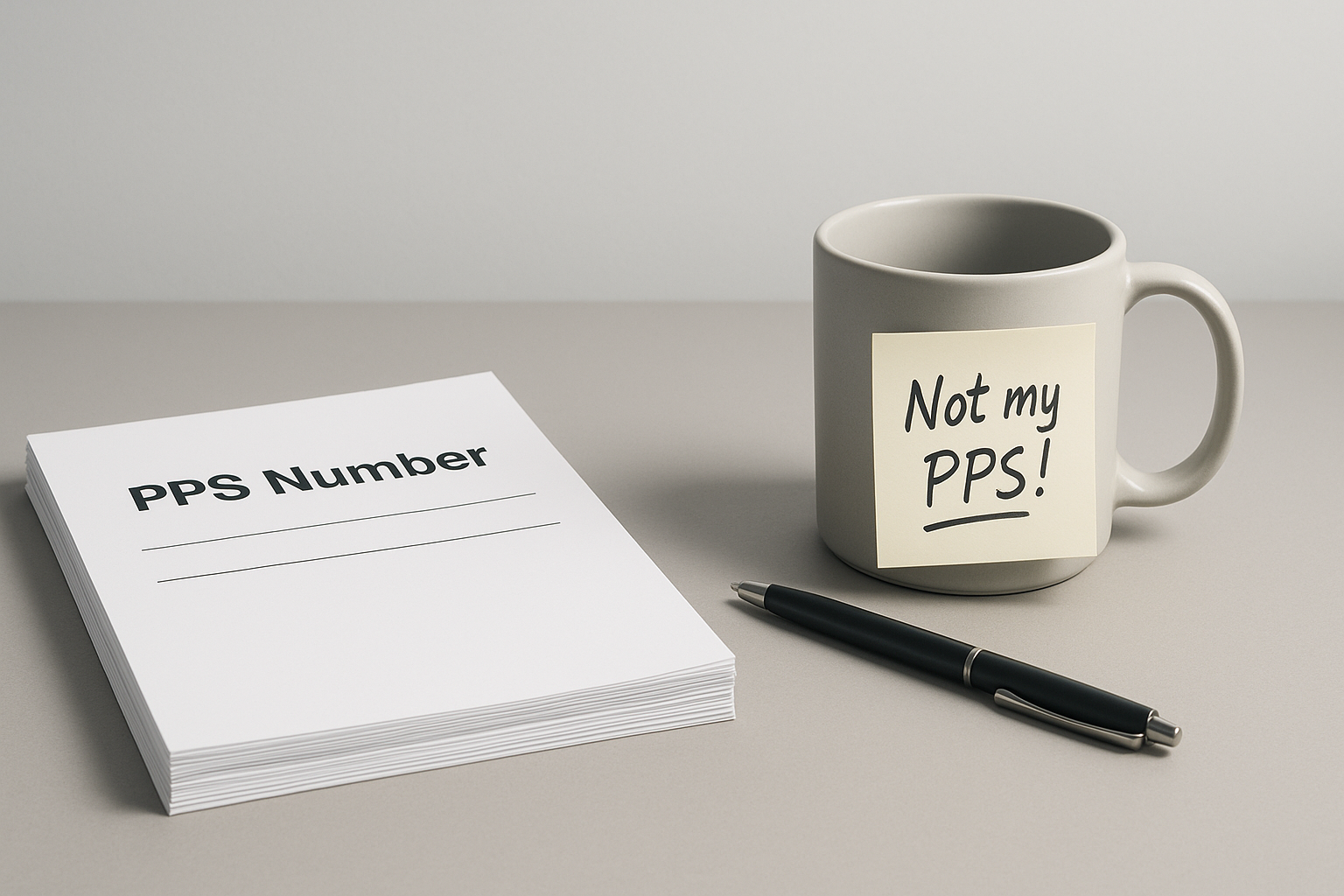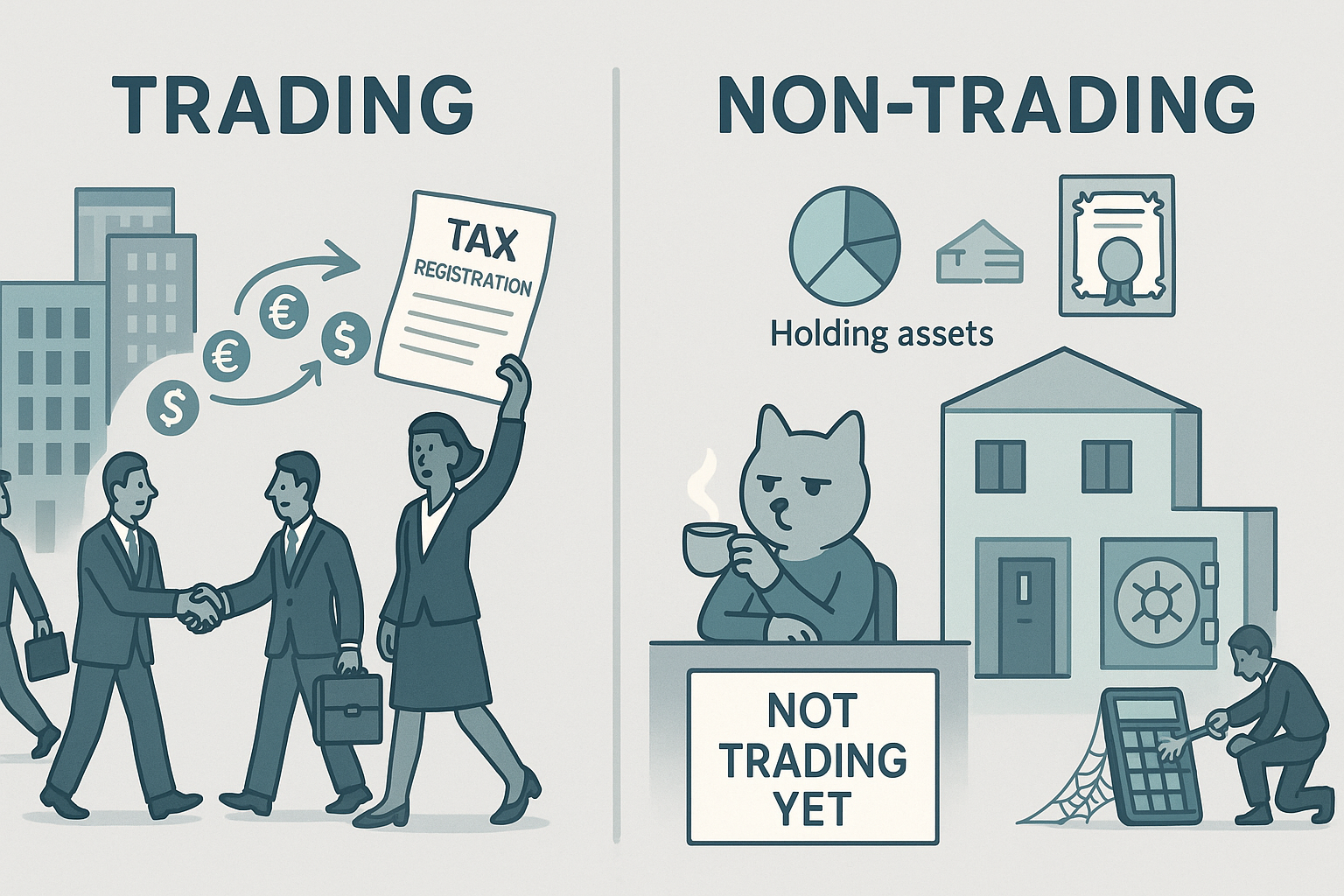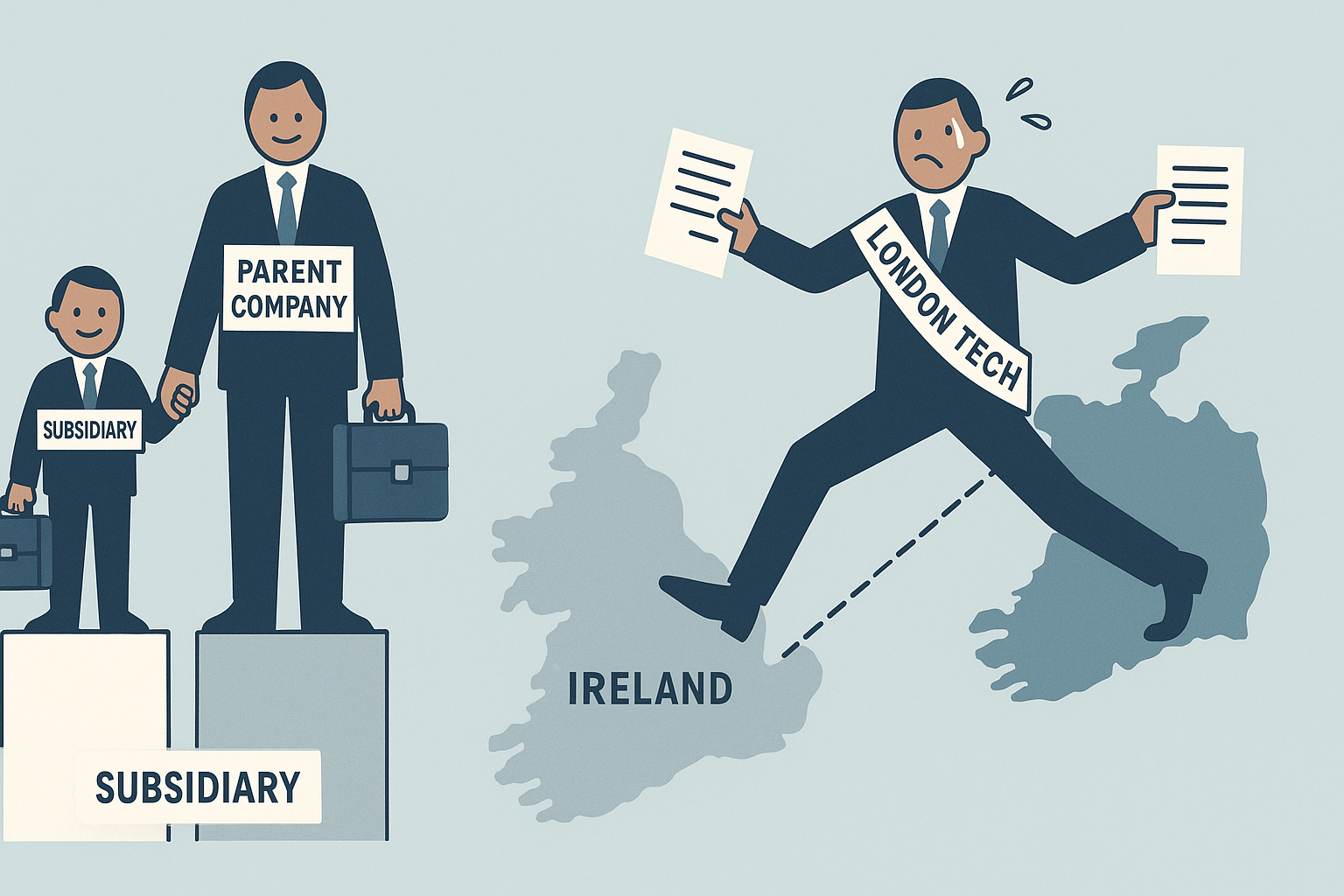Business owners and entrepreneurs looking to establish a European corporate presence should read this article.
This guide is particularly relevant for international companies considering Ireland as a location for their group holding structure.
Key Takeaways:
- Ireland offers the lowest corporate tax rate in Europe at 12.5%
- Ireland is the only English-speaking country in the EU post-Brexit
- Setting up a company requires minimal physical presence
- A holding company is exactly the same as a normal company
- The Irish holding company structure allows for efficient tax planning through its participation exemption and foreign tax credit system
- Ireland's stable political environment and highly educated workforce make it attractive for long-term business planning
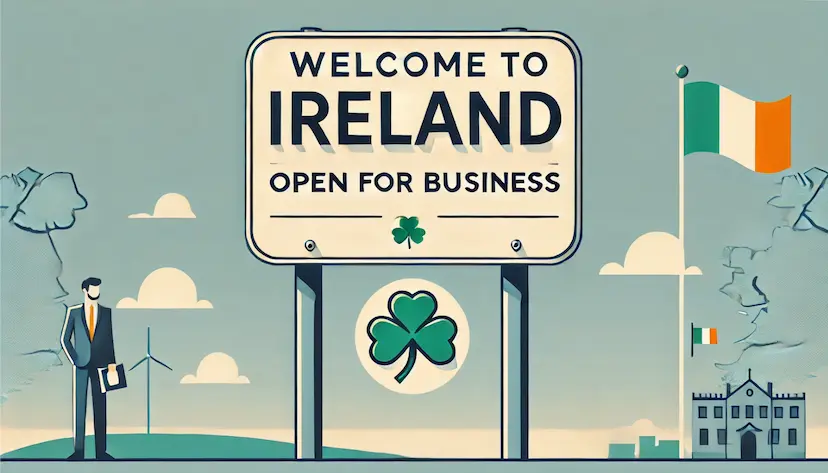
Ireland has emerged as a premier destination for international business, offering a unique combination of advantages that make it particularly attractive for establishing group holding companies.
With the lowest corporate tax rate in Europe at 12.5%, Ireland has an advantage on the rest of Europe when it comes to structuring your international business.
As the only English-speaking country remaining in the European Union post-Brexit, Ireland provides a natural bridge between Europe and the English-speaking world.
Understanding Group Holding Structures
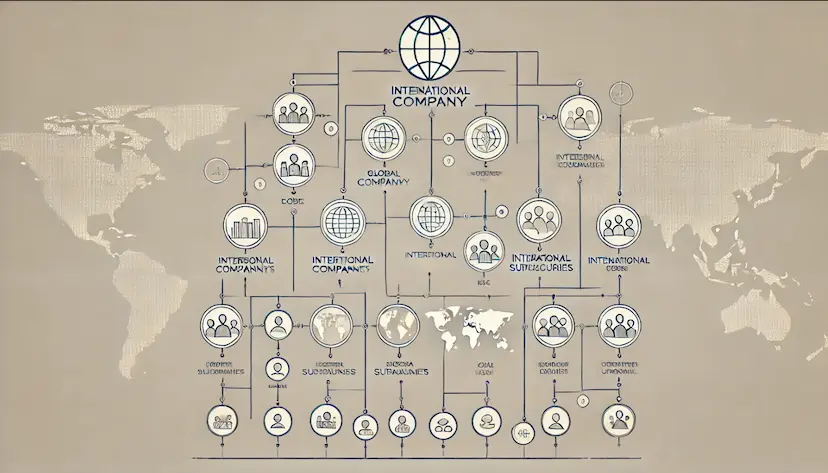
Before delving into the benefits of Irish holding companies, it's important to distinguish between group holding companies and personal holding companies.
Let's break down what we mean by different types of holding companies using a practical example.
A group holding company is a business structure that helps you manage and control multiple companies operating in different countries.
Think of a successful Irish software company that wants to expand across Europe. They might set up their main holding company in Ireland, which then owns and controls separate companies (called subsidiaries) in France, Germany, and Spain.
Each local company could handle that country's sales, employ local staff, and would follow local rules - but they're all ultimately owned and controlled by the Irish holding company.
This structure offers several advantages.
The Irish holding company can:
- Collect profits from all the subsidiaries in a tax-efficient way
- Make strategic decisions for the whole group
- Share resources and expertise across all companies
- Manage the group's finances centrally
- Protect each subsidiary from risks affecting the others
When we talk about collecting profits "tax-efficiently", here's what that means in practice.
When we talk about tax-efficient profit structures, here's what makes the Irish holding company approach valuable.
Let's say you're a French business owner with companies across the EU.
Rather than each subsidiary paying the local corporate tax rate in their country (which might be 25% in France or 30% in Germany), you can structure your operations so that the profits flow to your Irish holding company first.
These profits would then be taxed at Ireland's significantly lower 12.5% corporate tax rate.
For example, if your German subsidiary generates €1 million in trading income, instead of paying German corporate tax at 30% (€300,000), you could structure the business so that this profit is taxed in Ireland at just 12.5% (€125,000).
This same principle applies across all your international operations - the profits can flow through your Irish holding company, taking advantage of Ireland's low tax rate.
This structure is completely legitimate and is one of the main reasons why many international businesses, from small companies to large multinationals, choose to set up their holding companies in Ireland.
A personal holding company, on the other hand, serves a different purpose - it's designed to manage an individual's or family's private wealth and investments.
While this can be useful for personal asset management, the focus of this article is on group holding companies and how they can help your business operate efficiently across multiple countries.
Why Ireland Makes Business Sense
Setting up a company in Ireland is straightforward.
You only need a registered office address in Ireland, which can be facilitated through a virtual office service provider like Open Forest.
Shareholders can be located anywhere in the world, and director requirements are minimal - only one director needs to be resident in the European Economic Area (EEA).
Even this requirement can be circumvented through a Section 137 bond, providing maximum flexibility for international businesses.
The only real paperwork challenge, is that all directors and any shareholder owning more than 25% of the shares will need to apply for an identification number with the CRO.
The Irish Tax Advantage

Ireland's 12.5% corporate tax rate has attracted major US technology companies, including Google, Facebook, and Apple.
However, these tax benefits aren't exclusive to large multinationals - they're equally available to businesses of all sizes.
It also helps that Ireland has an extensive double tax treaty network covering 75 countries.
Ireland's extensive network of double tax treaties means you can move money between your Irish holding company and companies in those 75 countries without paying tax multiple times on the same income.
Without these treaties, you might end up paying tax on the same money in both countries - first where it was earned, and then again in Ireland.
These treaties prevent this double taxation, making it much more efficient to do business across borders.
The Foreign Tax Credit system in Ireland helps prevent double taxation on foreign-source income.
This means that when your subsidiary companies in other countries pay local tax, Ireland will generally provide credit for these taxes against any Irish tax due on the same income.
Structuring Your Group Holding Company

The versatility of the Irish holding company structure is one of its key advantages.
Don't let the image above scare you, it's not too bad.
You first start with the Irish Group Holding Company and maybe one of the subsidiaries (they can be in any country). The trading company can make sells, hire employees etc etc.
The Irish Holding Company can receive any profits from the trading company and would normally be where any investors put their cash.
Your personal holding companies can remain at the top of the structure, with the Irish group holding company acting as an intermediate holding company.
This structure allows you to maintain existing arrangements while optimising your tax position through Ireland's advantageous regime.
Share classes can also be created in any currency which might assist you with contributing cash to your company or paying up profits from one of your subsidiaries in the same currency.
The Irish Advantage Beyond Tax
Ireland offers more than just tax benefits.
The country boasts a highly educated workforce, with one of the highest proportions of science, technology, engineering, and mathematics (STEM) graduates in the EU.
The political environment is stable and business-friendly, providing certainty for long-term planning.
Additionally, Ireland's vibrant startup ecosystem and strong track record in attracting international investment create a supportive environment for businesses of all sizes.
How Can Open Forest Help?
Open Forest offers the cheapest and fastest incorporation packages in Ireland including holding companies for €99 including CRO fees, VAT and access to the Open Forest platform so you can keep track of all of your legal, tax and accounting obligations - at no additional cost.
Choose from one of our incorporation packages here and we will take care of the rest.

Stuart Connolly is a corporate barrister in Ireland and the UK since 2012.
He spent over a decade at Ireland's top law firms including Arthur Cox & William Fry.



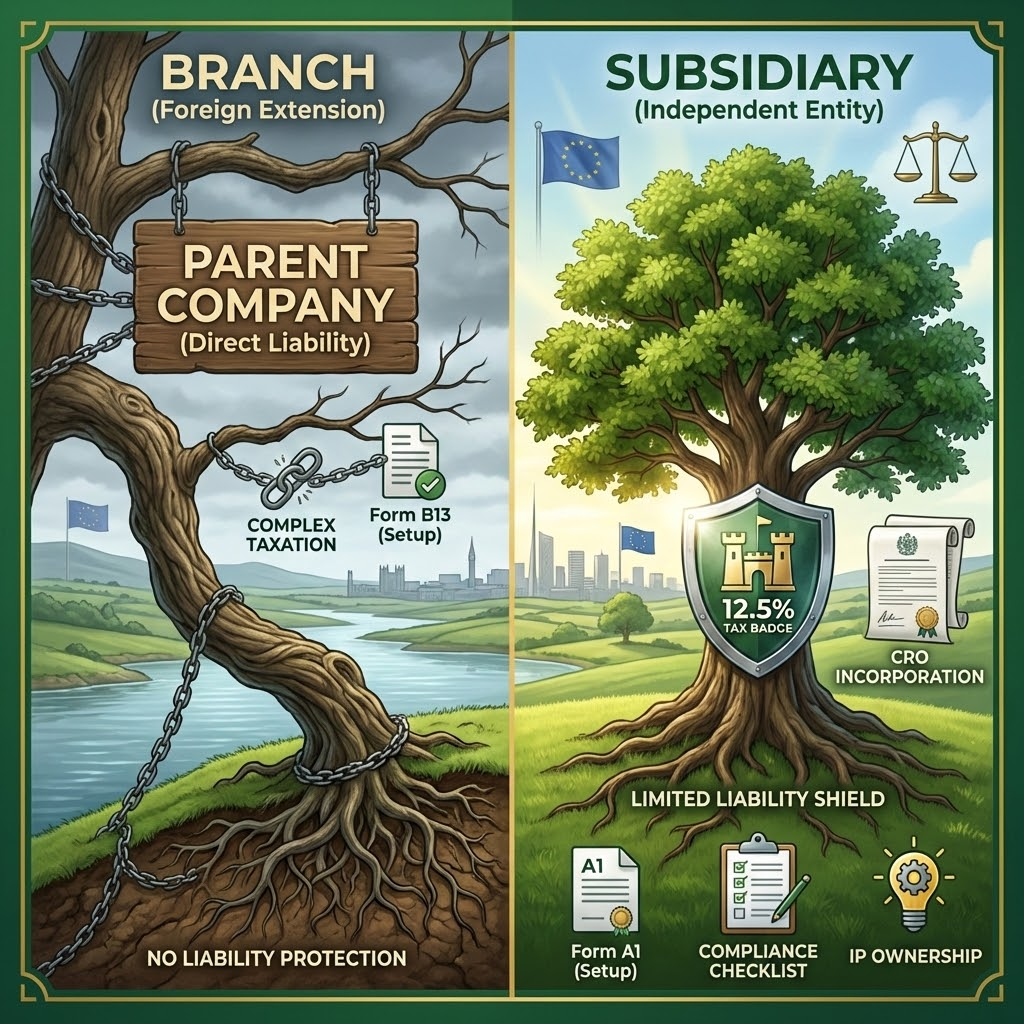
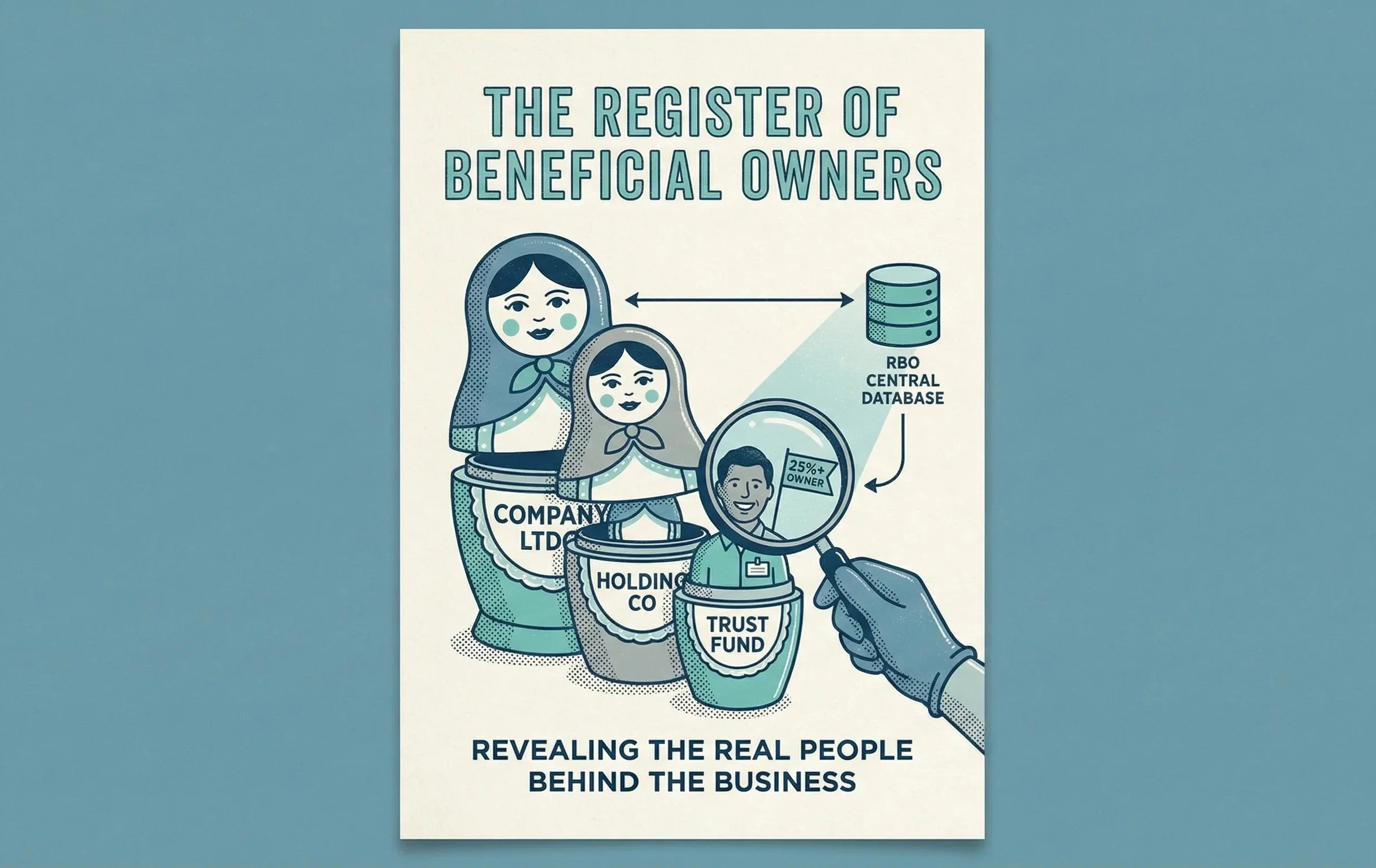
.webp)
.webp)
.webp)
